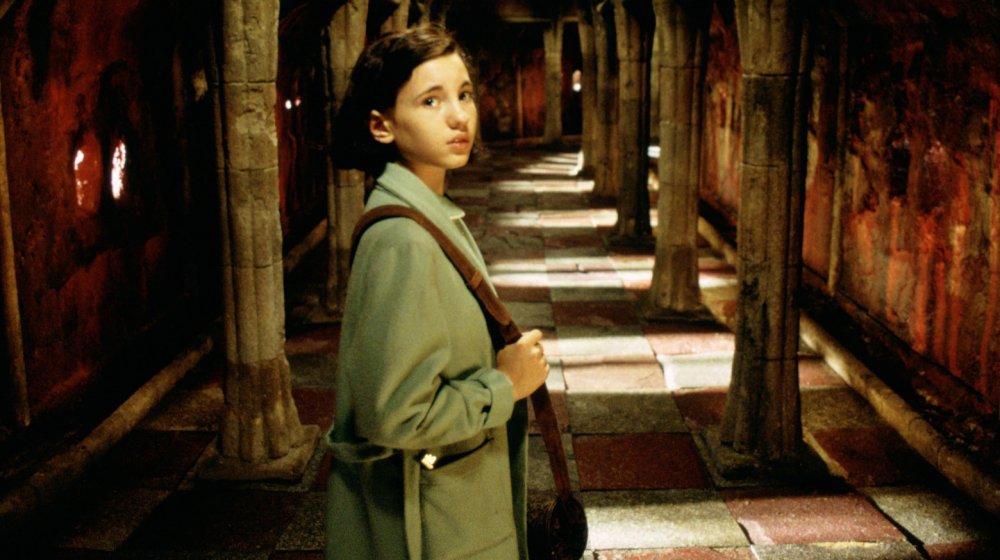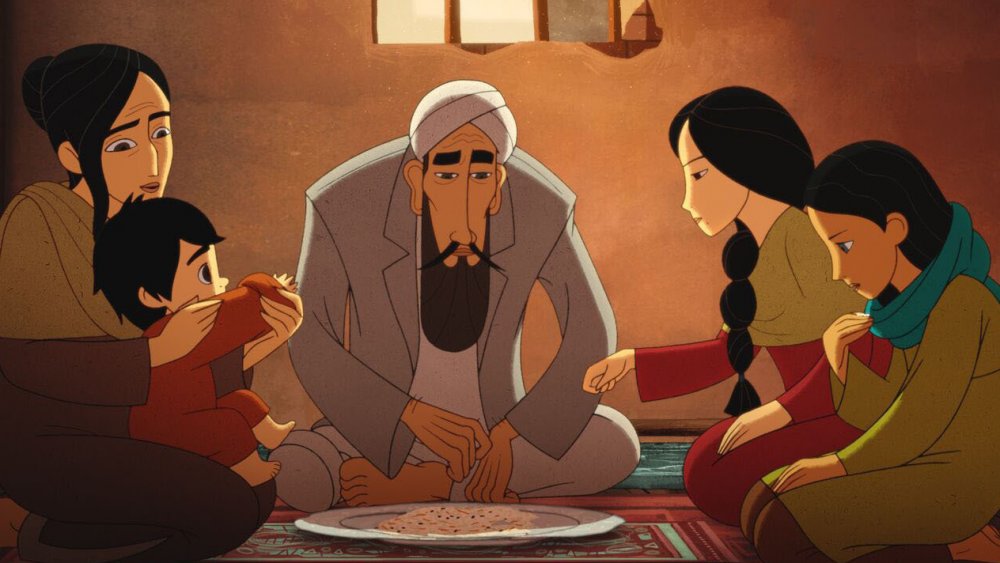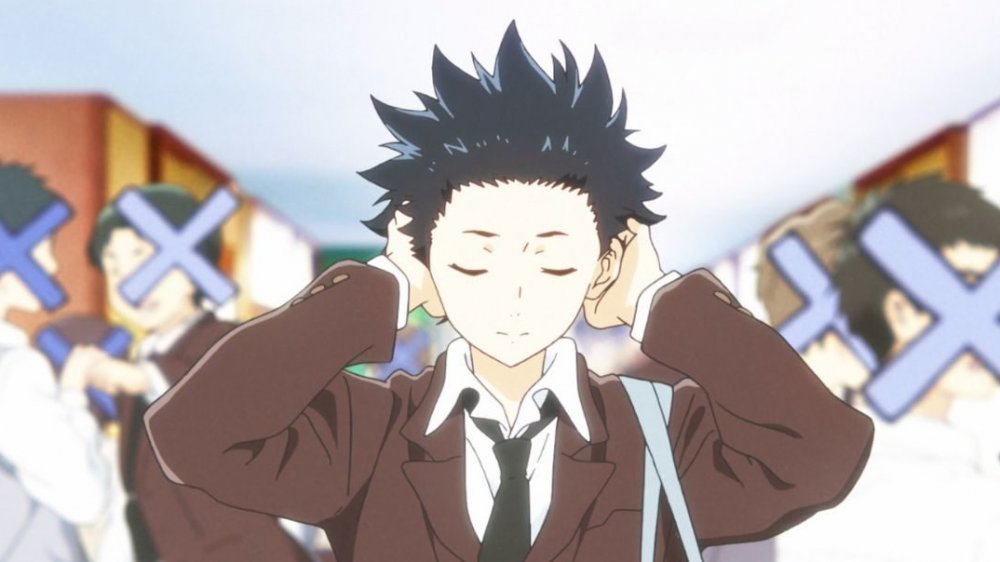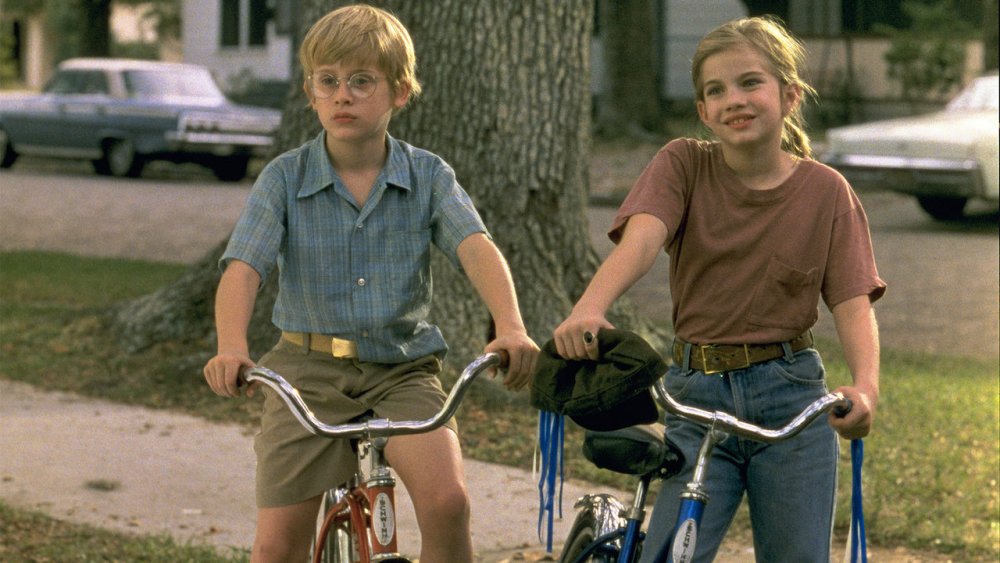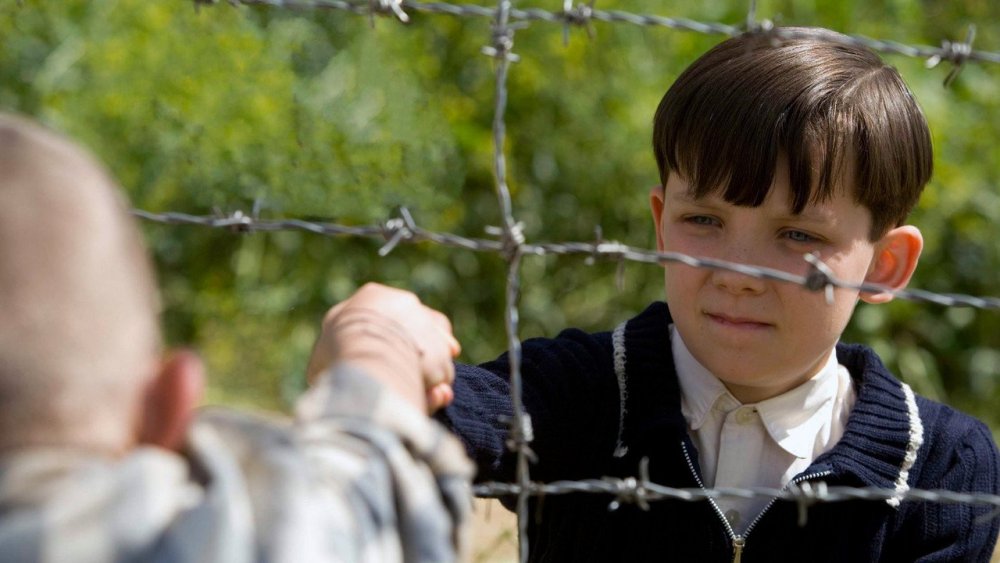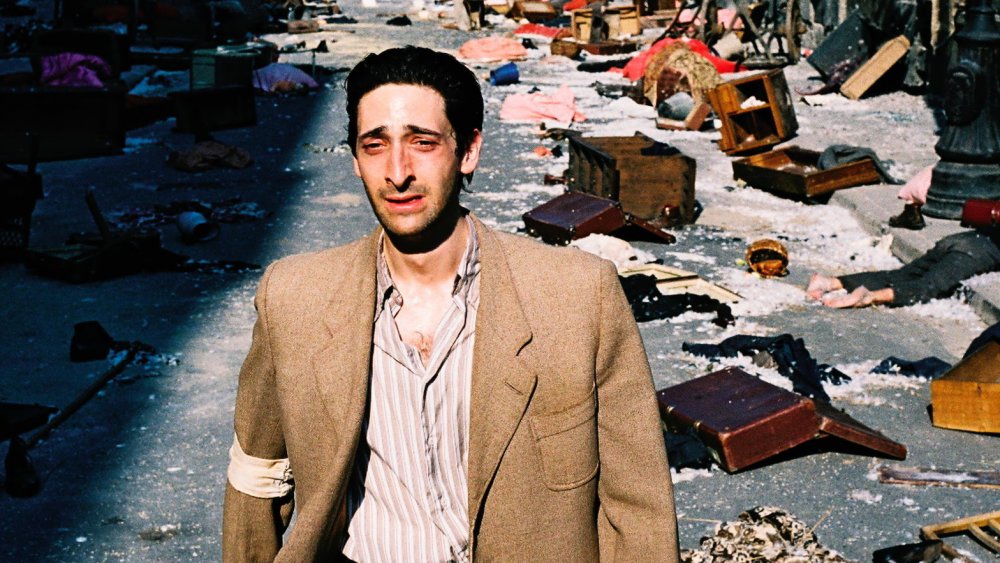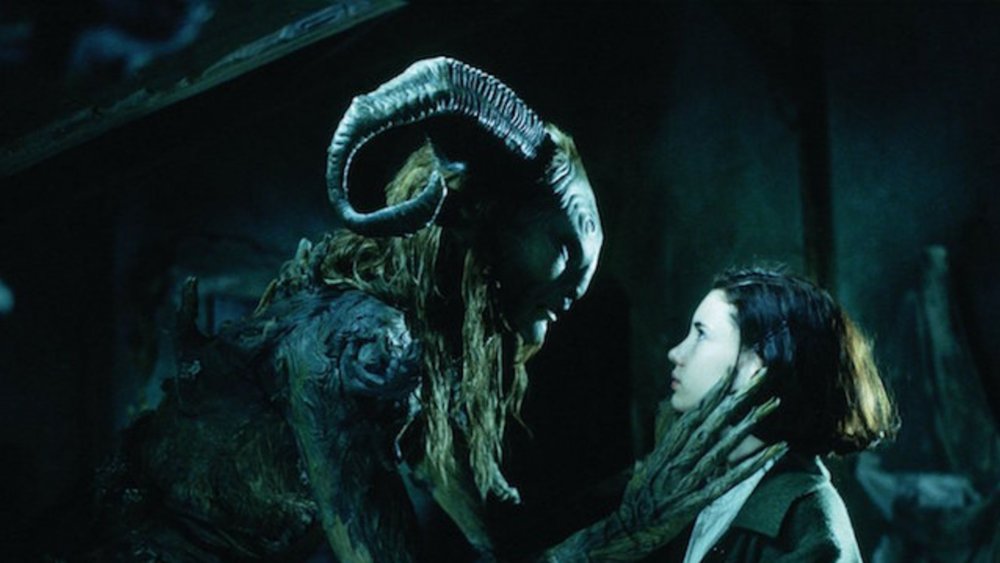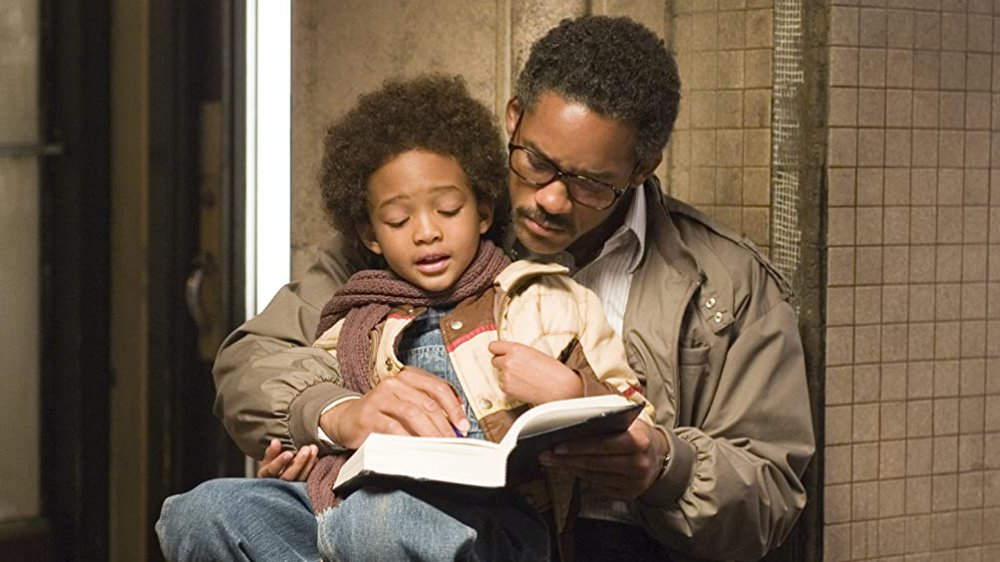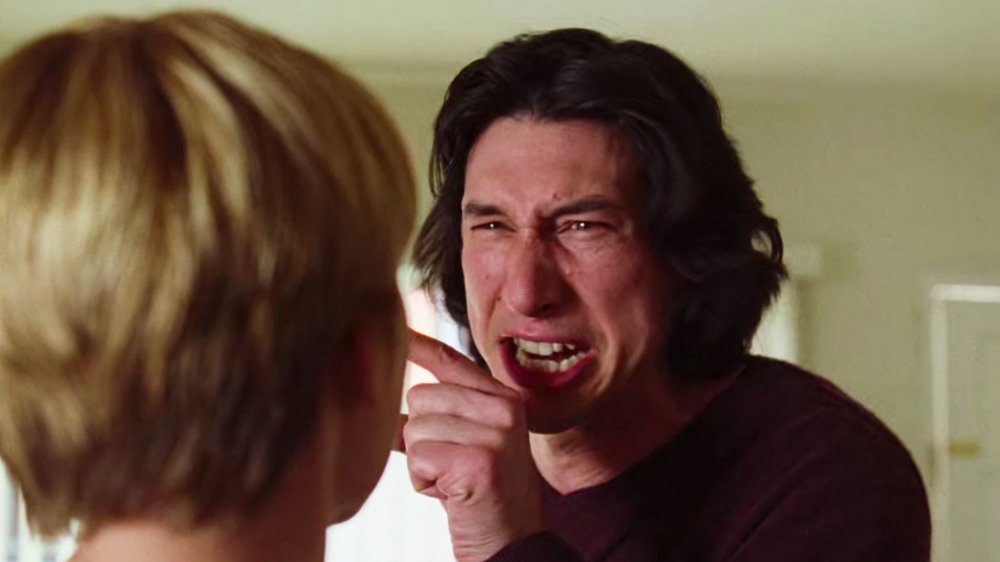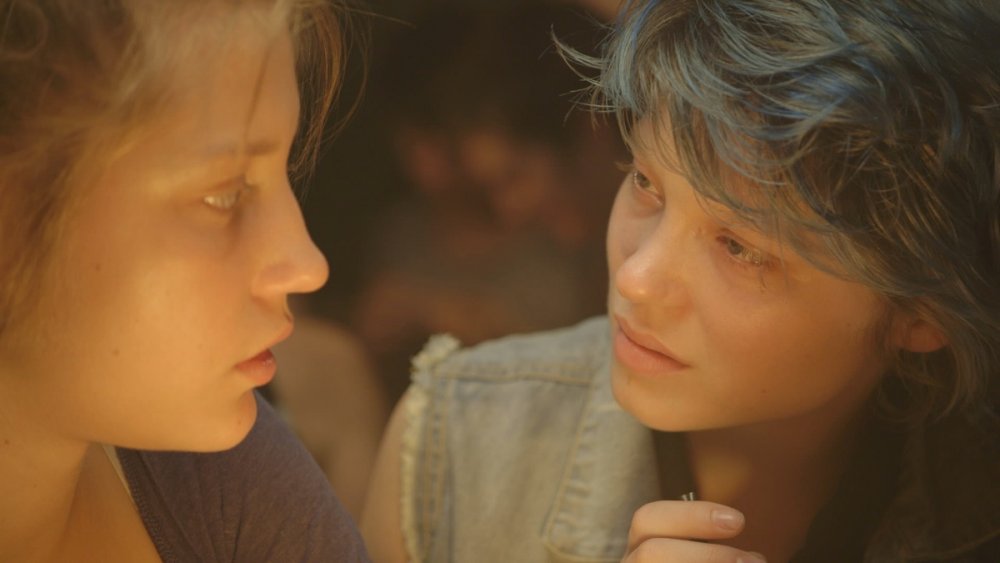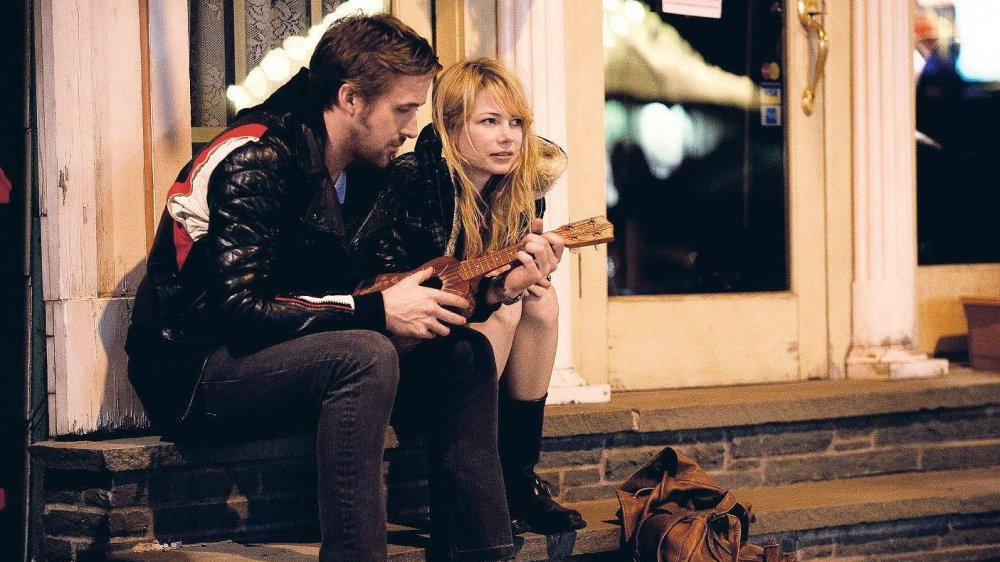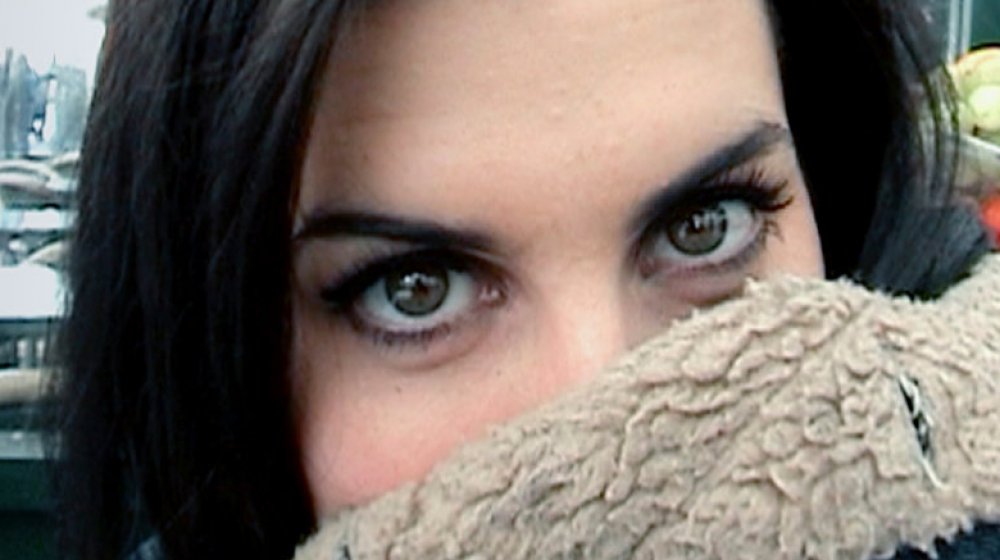The Best Sad Movies On Netflix That Will Make You Cry
When things get hard, people often try to distract themselves with a good movie. For many, this results in throwing on an effervescent comedy, or a really great action-adventure — something to provide a much-needed distraction. But sometimes, the best thing to do when you're already feeling down is to give yourself a good way to cry it out. Venting frustrations this way can be extremely cathartic, and if you're not quite capable of getting the waterworks going yourself, a sad movie can be the perfect jump-start.
Luckily, we live in an era of immense entertainment convenience, where even the saddest of films can be found at the click of a button on myriad streaming services. To get you started on your cry-fest, let's take a look at some of the best sad movies that Netflix has available right now. Subject matter ranges from pure fiction to history-based flicks, and even one extremely touching documentary.
The Breadwinner
It's rather remarkable that the 2017 animated film The Breadwinner is classified as a "children and family" movie — not because it's inappropriate, necessarily, but because it is so deeply dark. This film tells the story of 11-year-old Parvana, an Afghan girl living with her family under Taliban rule. After her father is unjustly arrested, Parvana decides to chop off her hair and disguise herself as a boy named Aatish in order to provide for her family. The ploy works — for a while. As regional tensions mount and war crests the horizon, Parvana must gather all her courage to keep her family whole.
This beautifully animated film explores the anxiety and fear of everyday life under the Taliban with arresting honesty. The knowledge that real children suffer under such regimes every day is sure to give the audience some perspective — as well as a feeling of hopelessness that is hard to shake. Proceed with caution, but know that any tears you shed will be richly earned.
A Silent Voice
This anime adaptation of Yoshitoka Oima's heart-wrenching manga starts off with protagonist Shoya Ishida intent on committing suicide. Once a bully himself, he is ostracized from his peers, and his loneliness and regret threaten to swallow him up completely. Though he changes his mind at the last second, he remembers that his troubles began in elementary school, when he chose to pick on a new student, Shoko Nishimiya, because of her deafness. Now in high school, Shoya decides to make amends with Shoko, who is struggling with her own conflicted self-image. The two form an uneasy friendship, and Shoya has to decide whether he's trying to help Shoko out of his own selfishness, or because he really cares.
Though the film ends on a hopeful note, there are plenty of heart-wrenching scenes that ask the audience to reflect upon their own actions. Knowing what happens won't lessen the blow either — rewatching is just as likely to get the tears flowing. Shoya and Shoko's story is a complex one, unafraid of confronting exactly how cruel people can be, and just how much work true forgiveness takes. This is what makes it sob-worthy — and what makes it rewarding.
My Girl
My Girl is a frightfully deceptive movie. A glance at its sun-drenched poster makes it look like a sweet tween romance starring Macaulay Culkin, only one year removed from the success of Home Alone. Yet My Girl couldn't be further in tone from Home Alone's goofy antics.
Vada (Anna Chlumsky) is the daughter of a widowed funeral home director (Dan Aykroyd) who has responded to the morbidity of her life by developing an obsession with death. Her mother died only two days after Vada was born, and through writing poetry, she realizes that she is worried she killed her mother. She befriends Shelly (Jamie Lee Curtis), the new funeral home makeup artist, but begins to resent her when Shelly starts dating her father. Vada's best friend, Thomas J. (Culkin), a fragile boy with severe allergies, provides comfort — and, as things worsen, a possible escape. My Girl does culminate in Vada starting to mend the rift between herself and her father, but only at tremendous emotional cost. While there is plenty of fun to be had in the company of this all-star comedic cast, My Girl doesn't pull any punches, so definitely have a box of tissues at the ready.
The Boy in the Striped Pajamas
World War II films kind of have the market cornered on hopelessly sad films. A movie is, after all, always sadder if it's based on real events, even if it's not completely accurate to history. Such is the case with The Boy in the Striped Pajamas, where concentration camp life is examined from two different perspectives: That of Bruno, the son of the camp's Nazi commander, and Shmuel, a Jewish inmate.
These two boys, too young to fully understand the realities of their lives, form an unlikely friendship through the barbed wire fence surrounding the camp. Bruno thinks that Shmuel and the inmates are all wearing pajamas — a fact which speaks to his ignorance about what his father does for work. When Shmuel's father goes missing, Bruno decides that he will help search for the older man. It's a Holocaust movie, so you know going into it that things are not going to end happily. Suffice it to say, The Boy in the Striped Pajamas is a glimpse of how prejudices are learned instead of being innate.
The Pianist
The Pianist tells the story of Polish-Jewish pianist Wladyslaw Szpilman, a classical composer and real-life Holocaust survivor. The film opens with Szpilman playing piano live on the radio when the station is bombed during the Nazi invasion of Poland. From there, viewers follow along as Szpilman and his family are forced to first live in the Warsaw Ghetto, and later the Treblinka extermination camp. Szpilman is recognized by a Jewish Ghetto Police officer and separated from his family, becoming a slave laborer. Spzilman forms a friendship with German officer Wilm Hosenfeld, who lets the emaciated pianist hide in the attic of an abandoned house and supplies him with food. As one might expect, The Pianist portrays one tragic scene after another, and is not for the faint of heart. This movie is a must for history buffs and anyone who can't get enough of inspiring, if depressing, true stories.
Pan's Labyrinth
Guillermo del Toro's oeuvre doesn't necessarily seem like the go-to for a good cry, but amidst Pan's Labyrinth's magic and monsters is a devastating story of human wickedness. Set in Spain during the Francoist period, this gorgeous film focuses on young Ofelia, who has come with her pregnant and ill mother, Carmen, to live with her new stepfather, Captain Vidal. Vidal's job is to fight back against guerrilla forces and defend the current Spanish regime. He is a cruel man, and Ofelia escapes into fantasy, befriending a faun who leads her through various fairy tale encounters, believing that she is the reincarnation of Princess Moanna, daughter of the king of the underworld. The moody and beautiful atmosphere and stunning special effects only add to the realism — and therefore to the heaviness of the subject matter. Though the monsters, depicted by Doug Jones, are enough to raise the hair on the back of anyone's neck, it is the harsh reality of Spain's political and social climate and Ofelia's tragic home life that make Pan's Labyrinth a gut-wrenching film.
The Pursuit of Happyness
Will Smith is probably best known for his comedic endeavors, but he has a fair share of dramas under his belt as well. One such drama, The Pursuit of Happyness, is based on the memoir of Chris Gardner, chronicling his time as a homeless salesman trying to support his son. It is, as you'd expect, a stirring story — and a brutal one.
The film starts with Chris, played by Smith, trying to sell portable bone density scanners in which he has invested his entire life savings. The time between sales puts a strain on his finances, and thus a strain on his marriage as well. His wife ends up leaving to find work elsewhere, and Chris struggles to raise his son, Christopher, Jr., on his own after being evicted. Though the story, both in real life and the film, ends on a happy note, watching Chris try desperately to do right by his young son (played by Smith's real son, Jaden Smith) is moving to say the least. Parents especially will understand his plight, though anyone with even a modicum of empathy will find their hearts aching for Chris as his bad luck piles up.
Marriage Story
It's always sad when romance dies and children are mixed up in the fallout. The Netflix original movie Marriage Story chronicles this process, as Nicole (Scarlett Johansson) and Charlie (Adam Driver) find that their different goals in life necessitate a divorce.
Though they had originally agreed to split amicably, Nicole ends up hiring a lawyer in Los Angeles while Charlie is running his theater company in New York City. He ends up flying to Los Angeles to deal with the situation, and is forced to hire a lawyer in order to protect his custody rights over the couple's son, Henry. What makes this movie especially hard to watch is knowing that Nicole and Charlie still love each other, and that reality, powered by Driver and Johansson's stellar performances, makes their separation all the more gutting. It's not surprising that this film made a big splash when Netflix first released it, as it so authentically portrays a situation that will be easily relatable to many members of its audience.
Blue is the Warmest Color
Based on a graphic novel, Blue is the Warmest Color is perhaps most well known for the controversy surrounding its explicit sex scenes. But beyond the scandal, there lies a heartbreaking love story. Teenage Adele is conflicted about her sexuality when she meets Emma at a lesbian bar. The pair begin a fiery romance, eventually moving in together after a couple of years. Emma's artistic lifestyle does not mesh with Adele's simple life as a kindergarten teacher, and a rift begins to form between the women. That rift is widened when Adele betrays Emma's trust, a crisis that soon spirals out of control. Watching passion bloom between Adele and Emma is exhilarating — but watching that passion die is utterly heartbreaking. The graphic nature of the sexual encounters in the film mean that it's for a mature audience only, but that audience will surely find themselves awash in sadness.
Irreplaceable You
Can you imagine discovering that you have terminal cancer, and knowing that you will leave behind the love of your life? Such is the case in the Netflix original movie Irreplaceable You. Childhood friends Abbie and Sam are engaged to be married when Abbie gets the news that her life has a fast-approaching expiration date. In her fear and grief, she decides she must find a new partner for Sam, someone to take care of him when she's no longer around to be there for him as she has been their entire lives. Through this journey, Abbie meets other cancer patients whose outlook on death is that they should enjoy life while they still can. Still, nothing brings on the waterworks like a cancer story, especially since so many people's lives have been touched by the deadly disease. The more plausible a film seems, the harder it hits, making Irreplaceable You an all-star tear-jerker.
Blue Valentine
Ryan Gosling is always a perfect romantic lead, and he tackles that role again as Dean in Blue Valentine. In a nonlinear narrative, the film follows Dean and his wife Cindy (Michelle Williams) throughout their courtship and marriage. The couple meet by chance when Dean, who works for a moving company, is delivering furniture to the nursing home where Cindy is visiting her grandmother. Cindy, unhappy in her relationship with her then-current boyfriend, eventually comes around to Dean when they meet again on a bus. The pair get married, and Cindy gives birth to a baby girl — unlikely to be Dean's daughter, but he is happy to raise her as his own. After that, the relationship takes many turns, most of them fueled by passion, booze, and fighting. Watching this romance build, grow more mature, and finally crumble into smoldering wreckage is sure to get your hankies out.
Amy
If films based on true stories are sad, then documentaries that examine real-life tragedies can only be worse. The music industry was shaken when singer-songwriter Amy Winehouse passed away on July 23, 2011, at only 27 years old. The 2015 documentary Amy gives fans a glimpse into Winehouse's life, chronicling her relationships and the difficulties with substance abuse that would ultimately lead to her death. The documentary includes rare home videos and interviews with the people closest to Winehouse, providing an unvarnished account of the musician's struggles. The documentary has gained much critical acclaim, including winning an Academy Award, a Grammy Award, a BAFTA, and an MTV Movie Award. It's easy to see why as you watch Winehouse's firecracker life play out on screen, her signature beehive and heavily lined eyes swaying in time to her evocative voice. Hers was a short and brilliant life, and this documentary is the perfect way to help one reflect upon it — and most likely have a hearty cry.
